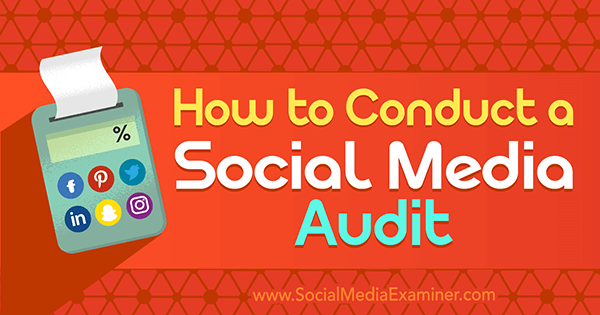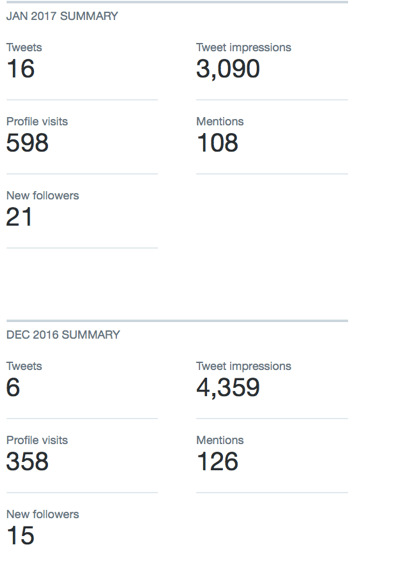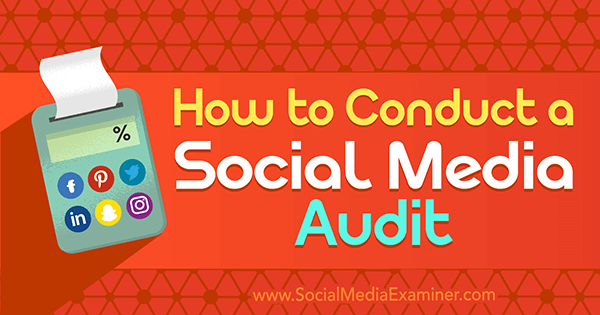Author: Ana Gotter / Source: socialmediaexaminer.com Wondering if your social media marketing efforts are paying off? Want to better under
Wondering if your social media marketing efforts are paying off?
Want to better understand what’s working?
A social media audit will help you analyze the impact of your social media tactics.
In this article, you’ll discover how to perform an audit of your social media channels.

What Is a Social Media Audit?
When you conduct a social media audit, you collect and analyze detailed data from all of your social media accounts. You look closely at your activity, results, audience, and financial investments (including ad spend).
Ultimately, you want to find out if your social media efforts are relevant to your current objectives and goals. Do you still have a Facebook group for an old subscription-based coaching program that you no longer run? Have you pinned posts to send users to your latest landing pages? An audit can help you pinpoint these details.
Doing an in-depth audit is similar to creating a budget for the first time, where you may discover you spend $2,000 a year on pizza delivery or new equipment you don’t need. For the social media equivalent, you may find you’re spending too much time or money on a platform that’s not delivering results, or that you’re lacking key demographics in your audience on Twitter but not Facebook.
You need to audit every aspect of your social media marketing to get a complete picture. Examine traditional metrics such as engagement and clicks, and also look at frequently overlooked factors, including:
- General sentiment of engagement from users.
- Average response rates and response times.

- Referral traffic from each social platform to your site. Do certain platforms have higher bounce rates than others?
- How users are interacting with you. Are they leaving reviews, comments, or direct-messaging you?

Breaking down your social media audit into four parts will make organizing and evaluating results a little easier. Because you’ll be comparing data from different platforms, it’s helpful to compile all of your results in a single spreadsheet. Here’s how to get started.
#1: Measure Overall Results
The first step in your audit is to compile all of the social media metrics you can to evaluate your overall results. These metrics include:
- Number of followers
- Likes
- Shares
- Comments
- Clicks
- Video views
- Number of followers
- Post reach
- Number of mentions (Twitter)

While you can access these metrics with on-platform analytics tools (with the exception of Snapchat), third-party social analytics tools let you create reports to show this information. (See the end of this article for some recommendations.)
Get into the details when analyzing these metrics. Take a close look at how they compare on different types of posts, too. Do you get more engagement from Facebook when you tag influencers than when you share blog posts? Do your video views get more engagement on Instagram or Twitter? Are they steadily increasing over time?

…

COMMENTS